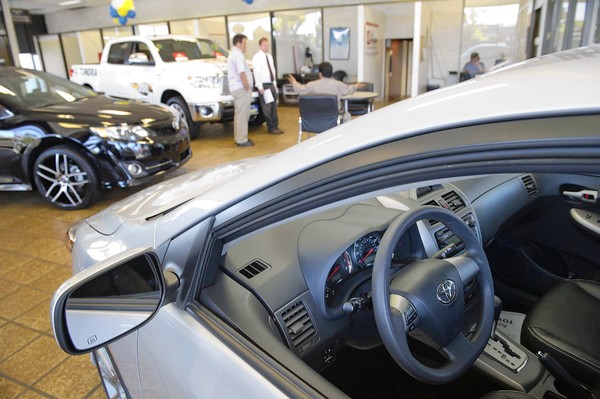August Car Sales Continue To Defy Fears
 August auto sales once again showed there is unexpected life left in the American automotive market.
August auto sales once again showed there is unexpected life left in the American automotive market.
Pent-up demand and improved credit access helped boost August sales by an estimated sixteen percent compared to year-earlier levels, with declining incentives and rising vehicle prices suggesting, if anything, that the market may still be building more steam.
Some makers reported positively massive gains, including not only Volkswagen but Honda, up 59.5 percent, and Toyota which reported a 49.6 percent jump compared to August 2012.
Hyundai was one of the few makers to post a single-digit increase and that appears to have been the result of supply issues – especially in the wake of six weeks of on-and-off strikes at the maker’s Korean production facilities. Hyundai nonetheless had its best-ever August and its highest-ever transaction prices, according to data tracking firm TrueCar.com, at $22,378 compared with $21,144 a year earlier.
VW was the only one of the top eight makers to actually see its average transaction price, or ATP, decline compared to July. It also increased its incentives by 39.3 percent year-over-year, to $2,568 per vehicle. On the whole, automakers cut incentives 6.0 percent from August 2011, to an average $2,457, according to TrueCar.
Analyst Joe Phillippi, of AutoTrends consulting, credited "pent-up demand" for much of the August climb. That was especially apparent among Japanese brands who suffered from severe shortages most of last year as a result of that country’s devastating earthquake and tsunami.
The Ford Escape recently migrated from a conventional truck-like platform to a car-based crossover "architecture" that delivers better handling and significantly improved mileage. The new 2013 Nissan Pathfinder will adopt a similar approach when it rolls into showrooms later this year.
Even conventional, full-size pickups did better than expected in August, Ford alone rolling up sales of more than 58,000 F-Series models – causing analyst Phillippi to suggest that this "might bode well for (the) construction" industry, as most full-size pickup trucks today are sold for professional, rather than personal, use.
 August auto sales once again showed there is unexpected life left in the American automotive market.
August auto sales once again showed there is unexpected life left in the American automotive market.